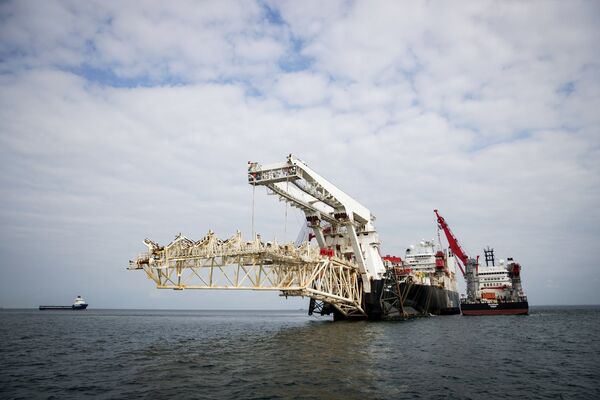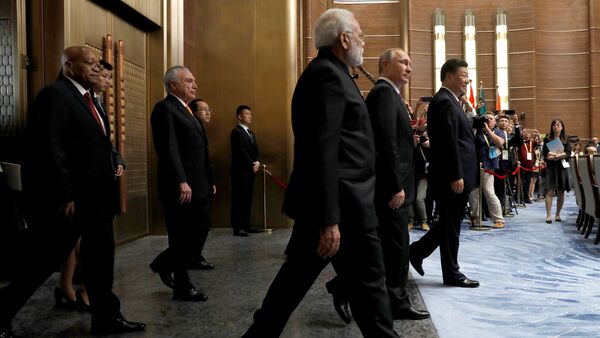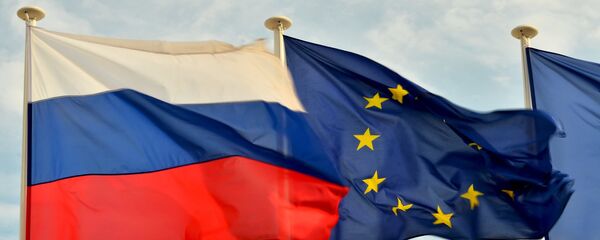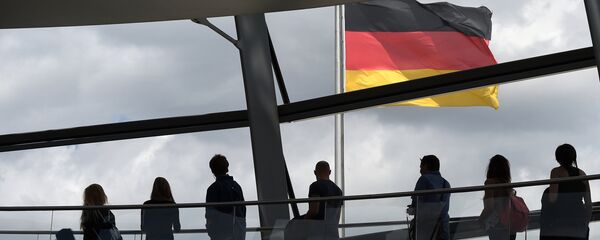Sputnik: In a 2010 interview with Spiegel Vladimir Putin outlined the idea of "a unified continental market with a capacity worth trillions of euros" stretching from Lisbon to Vladivostok. What's your take on this concept? Could this plan be executed while Brussels is fanning its anti-Russian stance in Europe? What is the major stumbling block in the way of a European-Russian rapprochement?
Glenn Diesen: The main stumbling block in terms of a European-Russian rapprochement is nothing less than the failure to reform the entire European security architecture that maintained its dividing its lines after the Cold War. Putin's statement from 2010 alluded to the proposed EU-Russian Union that would unite the trans-European space from Lisbon to Vladivostok based on shared geoeconomic interests. This initiative was part of Russia's 500-year-long struggle for recognition as a European power.

Sputnik: Despite US threats and EU sanctions European countries line up to join the Turkish Stream project kicked off by Moscow and Ankara in 2015 after Brussels had forced Russia and its European business partners to abandon the South Stream pipeline. What's your prognosis on the future of the Russo-European energy cooperation? Could it form the foundation for a deeper business cooperation and revocation of sanctions in the long run?
Glenn Diesen: Energy cooperation is not obstructed by economics as Europe needs Russian energy, but by politics as Russia is denied any influence on the continent. The EU seeks to develop asymmetrical interdependence with Russia to maximise the EU's autonomy and influence, while denying both to Russia. Asymmetrical interdependence is created through collective bargaining power as the EU's 28 member states and external partner states band together for collective influence vis-à-vis Russia. In EU-Russian energy trade there is symmetry of interdependence as the EU is reliant on Russia as a supplier, and Russia is dependent on the EU as a consumer. To skew the balance of dependence in favour of the EU, there have been strident efforts to diversify away from Russian energy and to ensure that transit states such as Ukraine look to Brussels rather than Moscow for leadership. Russia is now diversifying away from dependence on the EU as a consumer by developing pipelines infrastructure heading to the East. Russia reducing its dependence on the EU could improve relations over the long-term as the EU under German leadership would be more apprehensive about toppling governments on Russian borders and engaging in aggressive economic warfare if Russia has other consumers for its energy resources.
READ MORE: Rise of the Right in EU: 'People Don't Want to be Raped and Robbed' — Academic
Sputnik: In your book "Russia's Geoeconomic Strategy for a Greater Eurasia" (2017) you emphasized Russia's role as a natural bridge between the East and the West and the South and the North of Eurasia. What is your vision on the future of the Eurasian geopolitics and geo-economy and what part will Russia play in it? Will the EU maintain its dominance or become an equal partner in the constellation of Eurasian nations? How does the idea of the "Greater Europe" correspond to the Anglo-Saxon concept of the Eurasian Heartland?
Glenn Diesen: Russia's geo-economic strategy for Greater Eurasia is a repudiation of its former Greater Europe initiative. The objective is to remove Russia from the dual periphery of Europe and East Asia, and reposition itself within the centre of a broader Eurasian geoeconomic constellation. Eurasia has most of the world's wealth, resources, and population — yet there is very low economic connectivity. A Sino-Russian partnership can collectively create a gravitational pull that allows them to capture the geoeconomic levers of power by creating an alternative to the Western-centric model. This entails developing new global value chains that captures the high-value activities in strategic industries and energy markets, developing new transportation corridors through Eurasia and the Arctic, and constructing new financial instruments such as development banks, trade/reserve currencies, technical standards, and trade regimes.
READ MORE: As Russia, China, India Remapping Eurasia, US Mulls Over Military Plans — Author
Glenn Diesen is a professor at the Higher School of Economics (Moscow), and author of "The Decay of Western Civilisation and Resurgence of Russia: Between Gemeinschaft and Gesellschaft," (2018) and "Russia's Geoeconomic Strategy for a Greater Eurasia (Rethinking Asia and International Relations)" (2017).
The views and opinions expressed by the contributors do not necessarily reflect those of Sputnik.






